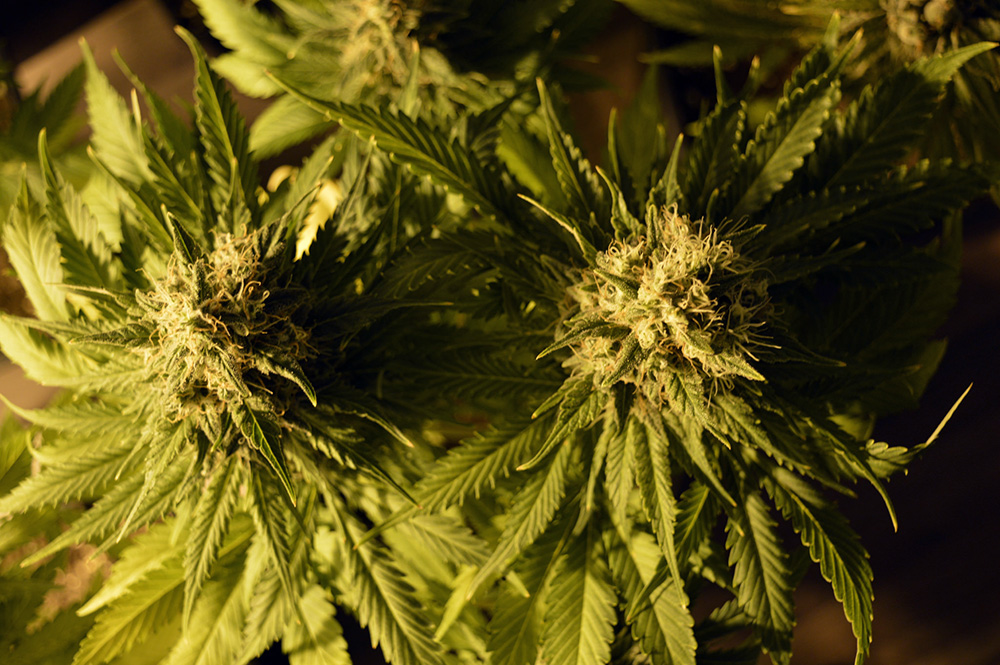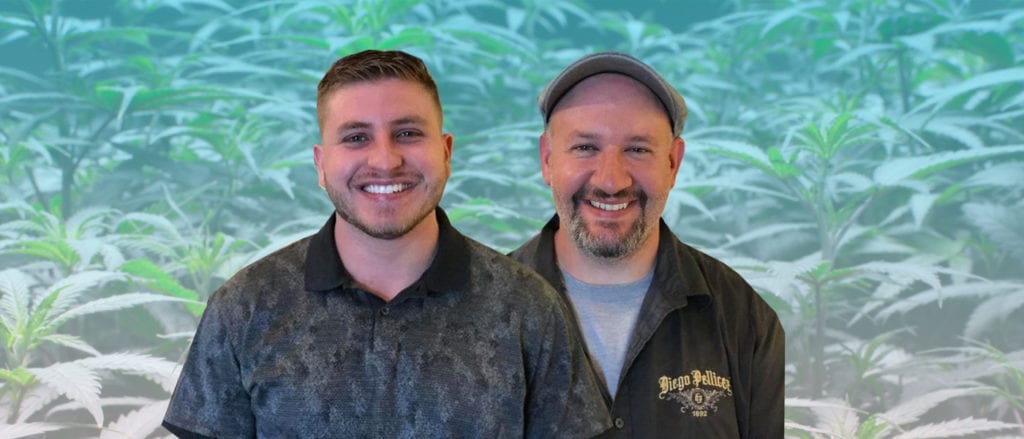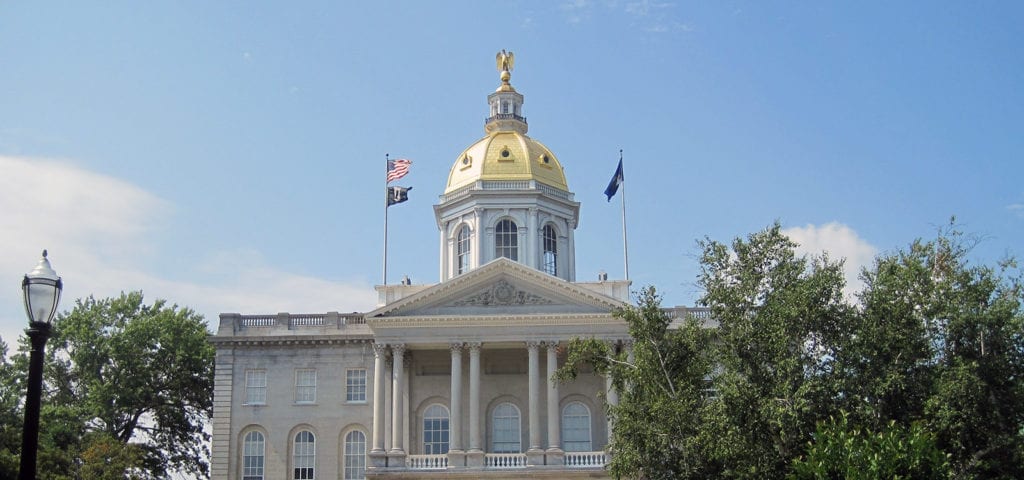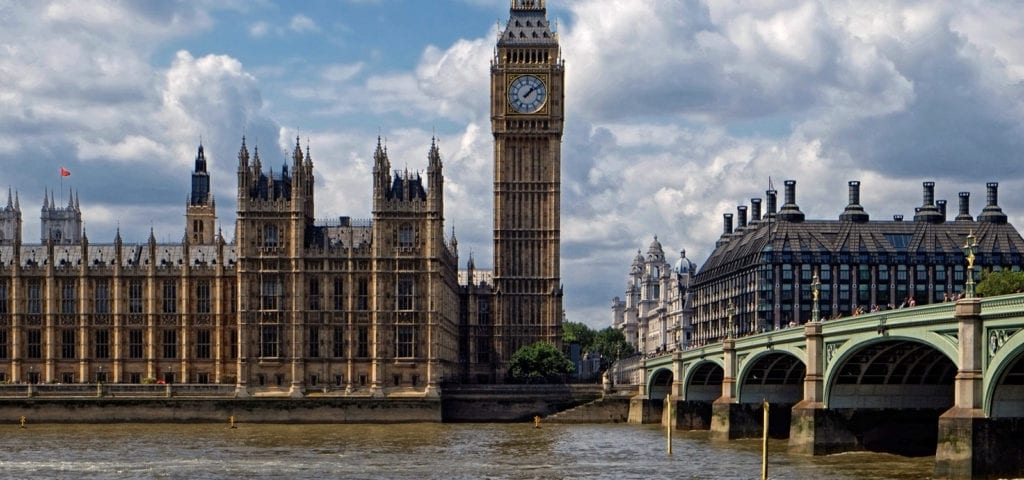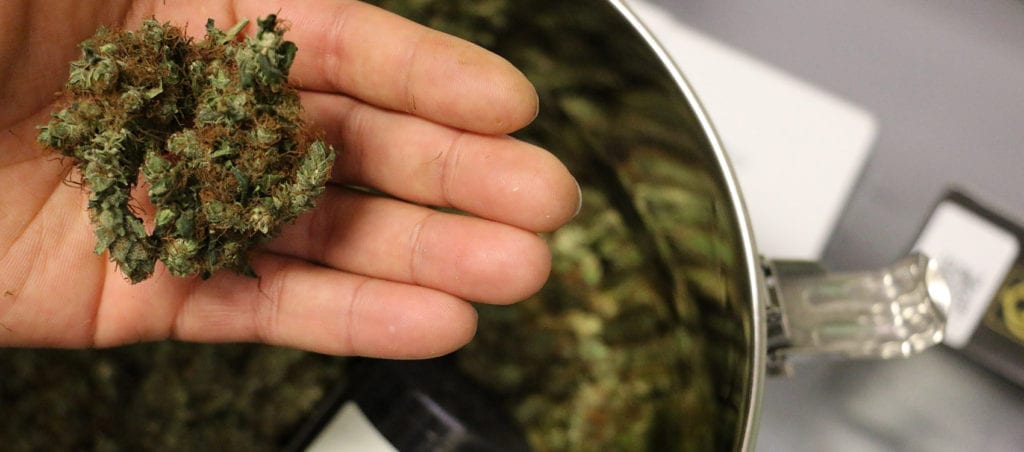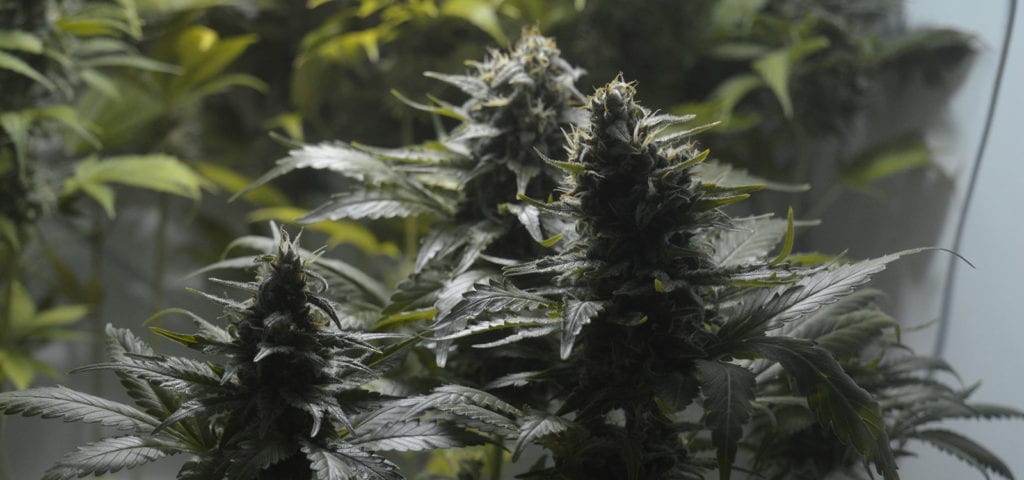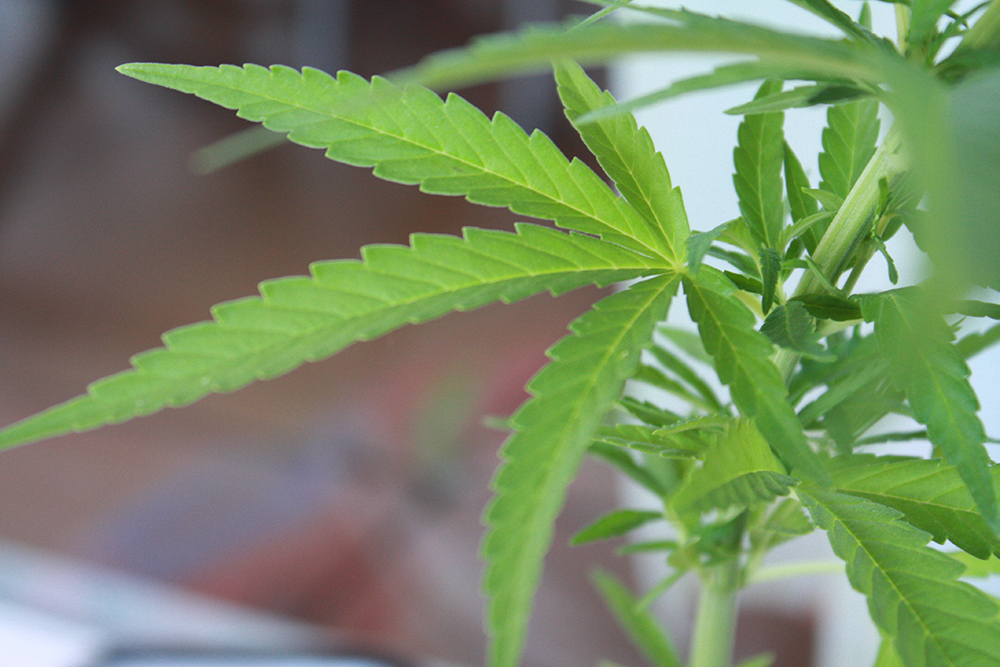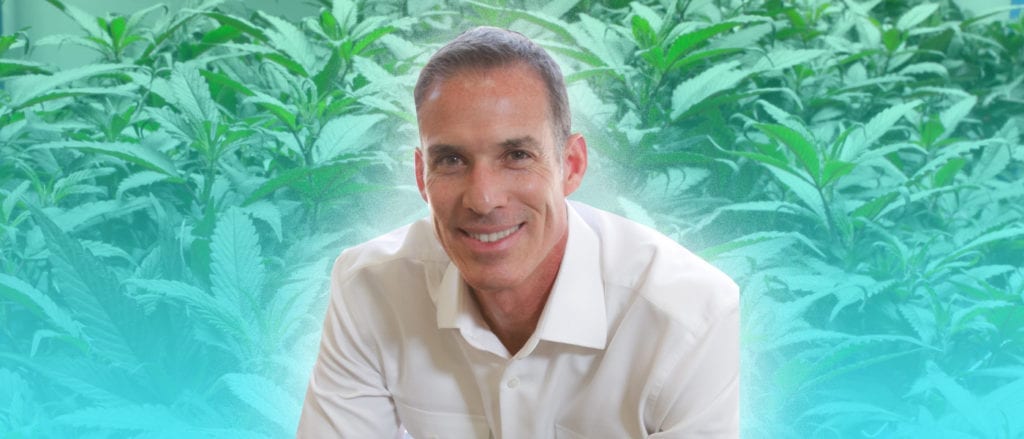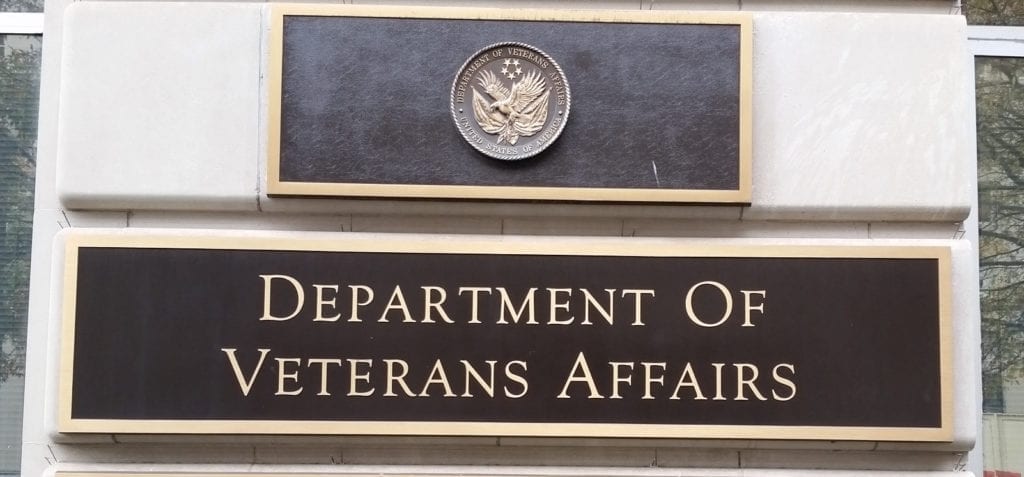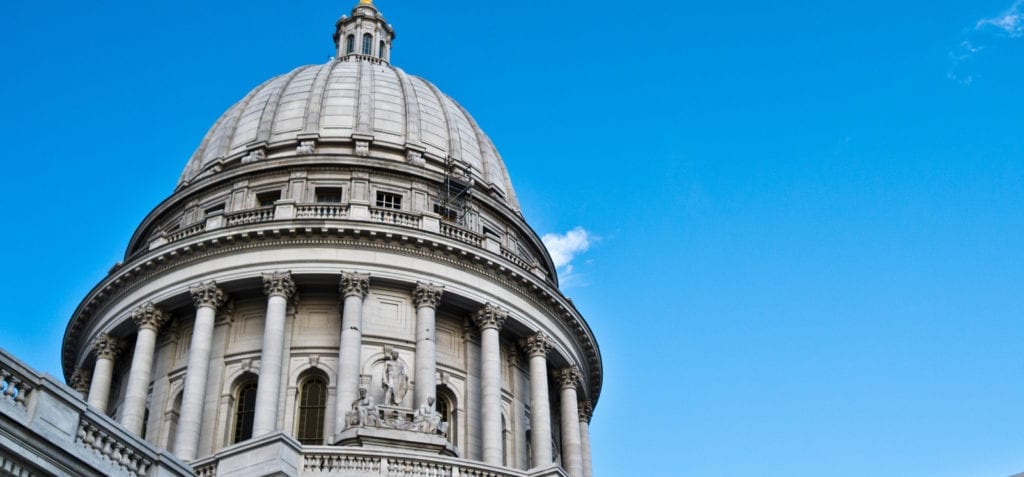Alejandro Canto and Jesse Leach are, respectively, the owner and general manager of Diego Pellicer in Washington. Diego Pellicer is a retail cannabis location in Seattle licensed under Washington’s adult-use, I-502 cannabis market.
In this podcast interview, Alejandro and Jesse join our host TG Branfalt to talk about the spirit of entrepreneurialism, the planning and execution of a powerful brand identity, creating customer satisfaction in a cannabis retailer position, how rare and luxury offerings can drum up excitement among consumers, and more.
Listen to this week’s Ganjapreneur.com podcast episode via the player below, or continue scrolling down to read a full transcript of the interview.
Listen to the podcast:
Read the transcript:
TG Branfalt: Hey there. I’m your host TG Branfalt. You’re listening to the Ganjapreneur.com podcast where we try to bring you actionable information and normalize cannabis through the stories of Ganjapreneurs, activists and industry stakeholders. Today I’m joined by Alejandro Canto, owner and Jesse Leach, general manager, of Diego Pellicer in Washington. How you guys doing over there today?
Alejandro Canto: Hey Tim. How’s it going? It’s fantastic. It’s Alejandro joining here.
Jesse Leach: Doing great man. Jesse right here.
Alejandro Canto: Yeah, so starting off Monday going great. We just had a successful Mother’s Day. Me, Jesse and some of the team members here actually spent Mother’s Day together. We did a nice little cookout and all that since we’re all away from our moms. But it was pretty good, pretty good weekend.
TG Branfalt: Mother’s Day, is that one of those times where you get a little spike in business?
Alejandro Canto: You know, just about before any holiday there’s always a nice little spike, but even Mother’s Day on itself we don’t close here at Diego Pellicer. The only day we close is Christmas and Thanksgiving. Those are the only two days we close out of the year so business was good as normal. Probably a little better than your average Sunday.
TG Branfalt: Awesome man. Well, I want to talk about what you guys are doing over there but before we get into that, give me a little about your background. I know you, Alejandro, you’re 23 years old and running the show over there man, which is incredible. Congratulations. Tell me how you got into this whole thing.
Alejandro Canto: Yeah, man, thank you. I appreciate it. The kind words always bring a smile to my face. That’s for sure. You know Tim, to start it off, you kind of just have to know who I am and my background. I’m an immigrant. I was born in Spain. I moved to America when I was five years old. I came with a single mother and my sister. It was just us three. It was our little team of three with no one else helping us. We moved here when I was five, didn’t live in the best part. Moved to Miami, Florida. Lived around Miami, Florida, multiple different areas throughout our childhood. Hopped around all different schools through elementary, middle and high school. It was not having much growing up. My mom definitely did the best and provided as much as she could. She’s a great woman. Nothing but respect and love to her.
We certainly didn’t have everything we needed. If we needed something you kind of had to work up for it. The mentality of going out and building it for yourself has been engraved in me since day one. If I ever needed or wanted something that wasn’t a necessity like food, then I was probably going to have to find a solution to go and obtain that because it was going to be readily available. That mindset that if you want something you’ve got to go out and get it, it’s not given to you, has been engraved in me since very early on.
I guess, how’d I get at 23 to own and be where I’m at today, I mean I guess I could walk you down, I was in high school. I was a good student in high school, played football, wrestling. Had a little side hustle going on, fixing iPhones on Craigslist. Racing mopeds, dirt bikes, whatever it could be. Anything to make a dollar at the time. When I graduated high school I just didn’t have any structure in my life and I needed some guidance in what I was going to do. I was graduating, I didn’t have, I wasn’t accepted into college. I couldn’t even afford college at the time and I was like well, what am I am going to do?
I had enough change in my pocket to sign up to EMT school. I said hey, why not? It’s a good career to be a paramedic, become a fireman. It’s a good way to give back to the community and it was a start. It was a start with some structure on what I could do to move forward and when ahead and signed up to EMT school. Great three months of my life. I said hey, this works great. Let’s do paramedic. Paramedic was a little longer, it was about a year and a half. Ended up signing up to paramedic, paid my whole way through as well. But as I was in paramedic I really just got to understand my passion that those little side hustles I was doing in high school were really building the basic fundamentals in owning a business within myself.
I just ended up, by the time I was graduating as a state licensed paramedic in Florida I was also opening up my first company. It was a therapy staffing agency, where we staffed physical and occupational therapists. Later on sold that one in a year after operations for a nice profit and moved on to the auto industry, where we owned a business, a business wholesale where we wholesaled cars. I ended up growing that company so big that just shortly after I turned 21, entering almost 22, I was getting ready to sell that company off and jumping into cannabis.
What kind of led that transition, Tim, was I was 21, entering about 22. I had expanded my attempt, my car dealership lot and I was getting ready to move into a bigger lot. That same time Colorado and Washington had just become legal for cannabis and I knew that if I was ever going to get into an industry that I could truly create something and become one of the great, and really build a legacy and an empire, I knew cannabis was going to be it. I knew cannabis was going to give me that chance to build the dream I’ve always wanted so I made the move.
I sold my portion of my car dealership to my business partner, I packed my bags and I left all my family and friends and moved 3000 miles away to Washington to start my dream. I haven’t looked back a day since. Now I’m 23, I’ll be 24 in August of this year and where we’ve progressed with the company is just quite outstanding Tim. It truly is.
TG Branfalt: My man, that’s one of the craziest stories I’ve ever heard from start to finish on this podcast. That’s absolutely incredible and talk about an entrepreneurial spirit bro. My man, congratulations. So why’d you choose Washington? You had other states available. Why’d you end up in Washington?
Alejandro Canto: Oh man, you know, honestly I’m one of those guys that listens to his gut feeling probably a little bit more than I should. Most of the time it works out for my side and sometimes it doesn’t but it was one of those I really analyzed two states. It was Colorado and Washington. Mind you at this point I had a lot of friends that I had seen already take the plunge in Colorado but none of them ever made anything. They never made anything happen. They ended up going there and just ended up working for somebody. I knew that I didn’t want to just work for somebody. I mean, I’ll tell you this Tim.
Before I opened up my first company I was probably fired from my first 15 jobs. I was never able to hold a job. I was late to half of them so I knew that for me to be where I wanted to be I could start off working for somebody to learn the ropes but I quickly need to transition into the owner side of things. That’s exactly what I did Tim, when I moved down here. I started to learn the ropes. I had some basic fundamentals in cannabis but what I really did was I came down here, started catching up on the laws, on the legislation. I started learning the political side of this industry and I started really informing myself on what is cannabis and what’s the science behind this beautiful plant.
Putting so much focus and attention into that side of the industry really helped me expand my knowledge and start building what we have today, which is Diego Pellicer. What really made the ultimate deciding factor for me in between Colorado and Washington is kind of when I saw that there was a little opportunity with Diego Pellicer and where they needed a little help was in Washington. It wasn’t to be in the position that I am in today Tim. It was nothing near it actually. It was a lot, lot less. But it’s one of those I saw a little opportunity. I jumped at it, I took it, I grasped it and now where I am today I’m a majority owner of my company, which we truly believe is an empire that is growing with massive potential.
Again, it’s a little vision, a little opportunity, I jumped on it and it ended up turning into something much larger than the thought could be.
TG Branfalt: I want to talk to you about the brand. I’ve looked at pictures on the internet. I’ve never been there, I live in Detroit so it’s quite a ways away. It just jumped out to me. It was incredible. Like I’m looking at it, I’m like this is, am I looking at a museum? A few years ago I had helped an individual in upstate New York open a high-end gallery with bongs and $5000 snick pieces and stuff like that. It was a very similar concept except, I mean you took it, I mean it’s a whole other level when I look at these pictures. Tell me about the vision behind the brand first.
Alejandro Canto: Sure man. So the vision behind the brand is it’s simple. It’s to build an internationally recognizable brand that offers access to safe, legal and effective cannabis in an inviting and experiential atmosphere. That’s the vision behind Diego Pellicer.
TG Branfalt: Tell me about the business model. You bought the brand essentially? Tell me all about that.
Alejandro Canto: Cool, no problem. I didn’t buy the brand. I own the brand in my state of Washington because that’s where our laws tell us to do it but there is a parent company called Diego Pellicer Worldwide that is publicly traded. They’re a real estate company that holds the rights to the brand name and brand rights in all other 49 states in the United States. The relationship is Diego Pellicer Worldwide is a publicly traded company that’s a real estate company and it provides the real estate to cannabis owners and operators such as myself. I’m a little bit different because this state you can’t be licensing your name from out of state companies so I own all rights to the state of Washington, but other states that allow different setups will follow differently.
For example, the Colorado operator, Neil Demorist, which is my counterpart down there, he licensed his name from Diego Pellicer Worldwide as well as the locations for his four facilities down in Colorado. In my state I own Diego Pellicer. I own the brand and the way I got into it, I’ll break it down for you. I ended up buying into the company when it was Jayman Shodley and Peter Norris. Jayman Shodley’s the founder of Diego Pellicer which is, we actually date back, his great grandfather was Diego Pellicer and the whole brand is built on him. Which in the late 1800s, Diego Pellicer was born in Spain, boarded by the Spanish king to be the governor of the Philippines … , which he grew hemp for the Spanish navy.
Great, great story background there.
TG Branfalt: You guys share the ties to Spain too. That’s really cool.
Alejandro Canto: You know what’s even cooler than that Tim is that when I sat down with Jayman and really got to learn the story of Diego Pellicer and this company that I was now getting involved with and becoming a part of, it was so interesting to learn that Diego Pellicer was born about 10 to 15 minutes down the street from where I was born in Spain.
TG Branfalt: That’s gnarly.
Alejandro Canto: Dude it’s super, super cool because you’re talking about 130 years later. His great grandson was … Microsoft strategy manager for the last 14 years. You’re talking about a guy that worked just a couple steps underneath Bill Gates. He had direct access to Bill Gates for 14 years. A genius you could say. Developed this great vision for Diego Pellicer and when we started to talk, and here’s this guy that actually came here and helped with operations to really bring this into fruition, when we started learning about the brand and what it is that we’re representing it was just so cool to find out that Diego Pellicer was actually a lot closer to my blood than one would’ve thought.
It just happened to be that the guy was born just 15 minutes down the street from where I was so it couldn’t be any cooler than a story like that when I was finding out. It totally made me feel that the Lord blessed me and definitely put me in the spot where I am today and it was meant to be. I’m a firm believer that things do happen for a reason Tim, so it was one of those real cool things to find out.
TG Branfalt: One more thing before we go into a break here. With this brand, and like I said, if you go and you Google this, tell me about the setup. Tell me about the design process. Like, take me through that.
Alejandro Canto: So I’ll take you through both. I’ll take you through the company setup and then the design. If a state allows you to be vertically integrated, meaning that you could have a grow and a store, you would absolutely go that route. If we could have onsite, hands-on opportunity to control the quality of the product that’s being produced and delivered and sold through our retail chain outlets, we would always love to have that hand and ability in. Sadly the state that I’m in, Washington, does not allow the vertical integration. It’s the first state to follow the liquor model, which has full separation between the growers and the retailers.
Which means there’s three types of licenses in this state. You can either be a producer, which is growing, or a processor which is the guy that converts them into oil, extracts cannabis and essential oils from it. Or you can be the retailer that’s doing the actual sales to the consumer. But it separates it. You can’t do all three. You can either do the growing and processing or the retail. So the way we designed the stores, it first starts with what do the laws allow us to do? We want to be able to maximize on what we’re allowed and what we’re not allowed to do.
That’s how we usually come into the vision. We first see okay what do the laws allow us to do? I’ll break it down for you in my state. The laws did not allow us to be vertical. So we said okay, we can’t be vertical so we’ve got to build an environment that’s going to
be welcoming and it’s going to feel uplifting and it’s going to feel energetic to the consumer where they feel comfortable and it’s a place that they’re familiar with. When we started to look at other retail experiences, we looked at some of the top retailers, Nordstrom, Apple. Some of the guys that have really put the time and development into creating the right atmosphere but still have a great sense of class and high-end, and they’ve just been able to find that great breaking ground in between.
I think Apple had really capitalized on that really well and then from a retail perspective I think Nordstrom’s done a great job. That’s kind of when we sat down and designed Diego stores we tried to keep those successful business models in our minds as we play the vision of how the store is going to be laid out and designed. And then once we know how the laws are set up and what we’re going to be able to do and what we’re not going to be able to do, then we start entering the design process.
The design process is kind of simple in the sense that we’ve already laid it out. We know that we want the same look, feel and touch in all our stores, we want that consistency. So when we talk about design we know that we’re going to want to build something to Spanish feel. We want that old, classic, antique but yet modern and high-end Spanish feel, look and taste to it. If you go to any of our
Diego stores you’re definitely going to feel a Spanish taste in there, but a very elegant Spanish taste there throughout all our Diego stores where you can see fine craftsmanship of machinery, to woodwork or shelving, multiple items.
Yeah, that’s kind of the thought process that we bring in when we go to these designs.
Jesse Leach: Hey, I’m sorry Tim. I’m going to add on a little bit. So you know, specifically another way that the stores are getting built is also by region. You got, out here in Washington you have a lot of water. We really want to add in some stuff that adds there. So you’ll see displays that have beached wood and other various stuff. Then in Colorado you have stuff like it’s a major outdoor area so it looks more like a very warm log cabin if you will. Still the same very, very similar feel of the Seattle store.
We all do have imported tile from Spain, which is ran through both stores. We’ve got a much open wider ceiling than we do in Colorado but in there you have that tin accent that you would find over in Europe to help tie in both stores and just the theme. When we were designing a lot of this stuff we wanted it to be not your typical store. When the markets were both opening up in Washington and in Colorado, it all had the exact same feel. It’s “I’m going to a place, there’s going to be green and marijuana plastered everywhere. It’s going to have that stereotypical ‘stoner vibe.'”
That’s where not everybody is a stereotypical stoner vibe. You do have people that you would never realize that wears a suit probably will out-smoke most stoners any day of the week, but you wouldn’t know that. But because the fact is that they’re wearing that fancy-ass suit, we gotta, we wanted to take care of them as well. As a brand we like to say we’re affordable luxury. We have everything from a guy who’s driving around in a Maserati to the guy who’s only got the Huffy.
That was the whole idea of the brand.
Alejandro Canto: That guy’s got a nice Huffy though. I know what you’re talking about.
TG Branfalt: I want to talk to you guys a bit more about the experience, the customers, the employees. Before we do that we’ve got to take a short break. This is Ganjapreneur.com podcast from TG Branfalt.
This episode of the Ganjapreneur.com podcast is made possible by Name.com, a global provider of domain name, web hosting and email services. Every successful cannabis business needs and online presence, and every successful online presence begins with a domain. From your website to your email address, a good domain is easy for your customers to remember, it looks nice on a business card or billboard and it reflects the true identity of the project it represents. It’s important to reserve your domain early on when you are starting your business, as you may find that the .com address for your preferred brand or concept has already been taken. If somebody has already purchased the ideal .com for your business, they might be willing to sell it, but if they aren’t, you may have to get creative with one of the new alternate domain extensions such as .co, .club, .shop or even .farm. Reserve your domain name today at name.com/ganjapreneur.
If you are a domain name investor or venture capital firm interested in acquiring or advertising premium cannabis domains, go to the ganjapreneur domain market to browse a wide variety of names including strains.com, cannabismedia.com, mj.com and countless others. Discover branding opportunities for your next startup and learn about listing your premium domain names for sale at ganjapreneur.com/domains sponsored by name.com.
TG Branfalt: Hey there. Welcome back to the Ganjapreneur.com podcast. I’m your host TG Branfalt, here with Alejandro Canto, owner and Jesse Leach, general manager, of Diego Pellicer in Washington. Before the break we were talking about the design in the shop and how you, it was partly designed to appeal to maybe an affordable luxury, as you said, sort of customer. Tell me, what is your typical customer look like and are people dissuaded or maybe even a little threatened by the high-end nature of the shop when they first walk in?
Alejandro Canto: Absolutely Tim, absolutely. That’s actually one of the biggest surprises that most people have. One of the biggest surprises when they walk in through our doors, instant shock. They’re like my God, this is so beautiful. I did not know this was a cannabis shop. I thought this was a high end jewelry store. This is beautiful. Then the people that did know it’s a cannabis shop, that were told hey, that’s Diego Pellicer, that’s a cannabis retail outlet, those people are usually really shocked to see our prices and how competitive we are. One of the things we focus on Tim is I’m a competitive guy Tim. I played sports my whole life. I came from Miami. I got a little bit of a competitive bone and I want, I’m one of those, I heard the secret to failure in life is trying to please everybody and I’m trying to stop doing that Tim.
But I’m still doing that with my business. I’m trying to please every customer that comes in the door and giving them the best damn price the state has to offer. I really hold pretty strong to that. I make sure that my competitors down the street are always more expensive than me. Even though they’re not providing no where near the same quality, and by the way Tim, I’m not putting down any other retailer with this. I think all retailers are great. I just think some are better than others and I do think we provide better quality products than some of the other retailers do. But what I do know we do provide that they don’t is a high-end experience at a much more affordable price.
That’s really where we pride ourselves Tim. We know we’re giving back. We like to say that Diego Pellicer is your store, as in the consumer’s store, and we want you to feel like that when you’re in here, but what we came to notice was that if you’re paying an overpriced price, a ridiculous price out the door, you’re not going to feel that way and you’re not going to feel like it’s your store. You’re going to feel like well, that was nice but I don’t need to go back there. That’s not what we wanted you to feel like.
We’ve made sure that we’ve scanned the area up and down, left and right to make sure that the prices you’re paying at Diego are if not the best in the entire state, not just region. That’s something we take a lot of pride in Tim in how we’ve set up the store and how we’ve been able to meet those price points.
Jesse Leach: Another thing that, I’m sorry I’m just going to piggyback on that one as well. Another thing that we offer that you won’t find a whole lot of in the industry is actual fantastic customer service. I’ve done, I started my career in Denver, moved out here to Washington not too long ago, learning a lot about Washington. One of the things that you’ll notice the biggest difference between our places and compared to a lot of other places, our staff comes out on the floor with you. It’s a one on one experience that a lot of people don’t really get. A lot of people are set up behind a counter. You have a barrier, or some places they even stand above you.
Even as a consumer, that can be very intimidating. You don’t have that connection with a store that we provide and that’s the biggest thing that our big difference is, is just customer satisfaction. If you go in and look at a lot of our reviews you’ll see how many of our employees have been name dropped, all over Leafly and they’ll tell you, it’s all about the customer service.
Alejandro Canto: You know what it is Tim, to bring it together and just bring that a little into fruition is that we take the black market edge and anxiety out of it. When you’re at some of these pot shops, the way I’ve looked at some, they make it all dark in the street. You’re standing behind a counter, there’s a representative of the company standing over you, kind of like towering over you behind the counter, kind of hurrying you up like hey, what do you want. And as a consumer, not everyone’s highly educated in this industry yet and we’ve got to bring that knowledge and that light and shed it onto our people and provide them that knowledge and teach them about the product and show them that this is a better alternative than what they’ve currently been using.
You know, Diego has really brought that possible. It’s taken that black market feeling, you know how when you used to, I’m not sure if you did or not but if you ever bought cannabis or weed off maybe someone in the street at some point …
TG Branfalt: Never, not once.
Alejandro Canto: Not once. Well thank God Tim. I can say me too. But it makes you feel, you definitely feel like fuck, I’m doing something bad. My God, I shouldn’t be here. Your heart starts beating, you get all sweaty and it’s not a good feeling. It’s like oh God, that didn’t feel so good. When you’re at Diego you don’t feel like that. You feel nothing but luxury — but with affordable prices. That’s the best part about it. You feel just like you’re at a jewelry store. Yes ma’am. Hello sir. How can I help you? Nothing but respect. That’s the difference Tim. That’s the difference.
You know what it is Tim? It’s one of those, I could tell you about it all day but if you came and checked it out and experienced it one day, which I know you will, you’re going to see what we mean. You’re going to feel it. You’re going to walk outta here saying damn, this is my store. This is where I shop. And you’re going to be proud when you say that.
TG Branfalt: So you’ve described two different customers. You’ve described the older customer in the suit and the tie and then younger customers. Alejandro, you’ve said that you feel some younger customers are turned off by celebrity branded products and I mean, you’re right in that young customer, that 21 to 25, you’re right there. Why do you think that’s the case?
Alejandro Canto: Tim, I’m going to give you a few answers because I can answer this with different perspectives. I can answer this as the young cat in the neighborhood that is just giving you his opinion. I can answer it as a professional that understands the industry and has a high IQ in cannabis and could explain to you why some of those celebrity brands aren’t as special as they’re made out to be. And then I could answer your first question, which was why do some of the younger crowd not prefer the celebrity-branded products. We’ll kick it off.
I’ll use an example to start it. Yeezys. Super popular shoes. Every kid in life wants one. Very limited. Costs a ton of money, right? But at the end of the day Tim, they’re not very different than the pair of Nikes right? They both get the same job done, right? Except one costs maybe $80, the other one costs like $800. Same thing with weed. At a certain point, once cannabis gets to a certain level, I understand that there’s certain genetics and there’s certain strains that are found in very small portions of the world and they’re very high-end, they’re very exclusive. I get that.
But what ultimately makes the differences between these strains besides their growing characteristics is going to be the terpene profiles in them. At the end of the day, the THC found in one piece of weed versus the THC found in the other is the same cannabinoid and there’s no difference to it except the potency that it provides. What makes it different between flowers and indicas and sativas is the terpene profile and the flavornoids that’s in it. That’s what makes up the characteristics of these plants, which by the way Tim, as we start to know a little bit more about weed, THC isn’t the only thing getting us high anymore. It’s actually the terpenes and how the terpenes react with our body and the cannabinoids, such as THC and CBD that we’re ingesting.
That’s what really stands out in weed so when we come to understand and really appreciate weed and the quality for it and we come to understand what is the differences between them, we start to see that there’s really nothing special behind these branded celebrity products. It’s just a celebrity that found a really good strain, liked it, endorsed it, and now it costs twice, three times the price. Tim, celebrity products are good because they bring brand recognition and people feel safe and comfortable with the product and it’s usually product that’s gone through rigorous R&D testing to make sure it’s going to be product delivering the desired effects that the consumer is looking for, but Tim, I’m going to be honest with you.
I can give you the same exact bud that’s probably going to be a little cheaper from a different brand. That they’re doing the exact same process. They’re putting in the same amount of hard work. They sourced out that same exact, really special, rare genetic strain. That they’re growing with super soils and at different regimens than other are. They’re producing great but but just because a celebrity hasn’t endorsed it doesn’t mean it’s any less better or good. It just means it’s going to be more affordable.
The moment a celebrity endorses a product guess what? They’re getting a piece of that pie and now that product needs to get more expensive. I think with the younger crowd and the younger consumers that need to save a little bit more money because they’re running on tighter budgets, and it’s not. Because that just means usually they’re younger. They haven’t jumped into their career yet, right? They’re not making the amount of money that they’ll probably be making once they’re 30 or 35. Those guys are a little bit on a budget and as they become informed they start to realize that hey, this celebrity branded stuff isn’t really no big of a difference than the other stuff that’s available on the shelves.
Now, I’m not going to get carried away with that Tim and say that they’re all the same, that’s not true at all. There’s a very big difference in the quality of buds. But what I am saying is the top 5% of buds, that top 5% is pretty much all the same. At a certain point it becomes very difficult to say okay, well is this one that much better than this one? And does it really justify the 2x price difference? That’s where I think the younger generation is starting to catch on with all the social media and internet access that we now have. I think they’re starting to catch on saying hold on, wait a minute. This is the same stuff, just packaged in a different packaging and you’re charging me a whole lot more for it.
TG Branfalt: Do you find cannabis consumers to be, like younger cannabis consumers to be more well informed than their older counterparts?
Jesse Leach: You know, I’m sorry I’ll jump in on this one. To be honest with you, I think it all really depends. It all depends on you as the individual. There are people that will come in here and all they care about is the highest THC for the cheapest amount of money they can get, period. Or you’re going to have the people that are like us where we are looking for specific phenotypes. We do want a certain terpene profile. There are a lot of little cannabinoids in there that really does make a difference.
It just kind of comes down to educating the consumer. That kind of starts with your budtender. At the end of the day, the budtender is the one who’s going to dictate the market because anybody who doesn’t know anything about marijuana, one of the first questions that they come in and ask is well, what is your favorite? As an educated budtender you’re going to be like well, I’m just going to use Marley as an example. I have Marley’s blue dream here or I’ve got this other Marley or another blue dream but it’s from let’s say Triple Crown. Both of them are blue dreams, but because their phenotypes are completely different they’re going to be completely different blue dreams.
So I can either sell you a name or I can sell you a legit blue dream. That’s what it kind of comes down to.
Alejandro Canto: You know, just to wrap it up on what Jesse said on that Tim, all it is a celebrity name printed on a different packaging and they’re charging you more for it. I don’t want to disrespect any celebrity so I don’t want to mention any celebrity products because I’ve got a lot of respect for those guys and their art but I’m not disrespecting their art at all. I’m just saying how I feel about third party advertising. This is just how these guys make extra money. I’m not putting anyone down but I am being honest to my industry and I’m letting our people know hey guys, there’s really nothing special about that product.
Let’s say there’s a famous person and we call them Sharpie, rapper Sharpie. We all know the rapper Sharpie. He’s very famous. We all listen to his music. He’s all over iTunes. I’m making up a name just for examples. I don’t want to disrespect anyone. Now we got these Sharpie Kush and Sharpie Kush is all over LA and all over Washington and Colorado and it’s, the fire is budding. Everyone has to have it. You walk into my shop and you’re like hey, Alejandro I need to get that Sharpie Kush man. I heard it’s out of this world. I’m like hey Tim, I got you. The quarter’s going to be $120. You’re like that’s a little hefty but what have you got next to it?
I go well Tim, I’ll be honest, I got the same quarter, same exact bud, same exact phenotype and it’s $60. But this one, you’re going to pay that extra $65 because it’s Sharpie Kush instead of the regular Kush. You see what I mean? There’s no difference. If you could trust your budtender on some of the buds, there’s really no difference between them. It’s just that Sharpie Kush got endorsed and now they’re paying him royalties on that product and they’re going to charge a hell of a lot more for it.
That’s the industry we live in. We want to be able to use the products that we see the celebrities use and we want to feel that connection with them and we want to have the same items they have. Those are nice things Tim and I’m not going to tell you no. If you come into my shop and you’re sold on it, I’m going to join with you, I’m going to talk about that artist’s music with you, we’re going to have a blast and I’m going to sell you that product. But if you come in here with me and you told me Alejandro, I’m on a budget man but I need quality product, I understand that these is just the brand name. What else is just as good? That’s where I’ll walk you Tim and I’ll show you good product that you don’t have to pay an arm and a leg for.
TG Branfalt: In my conversations with a lot of consumers here in Michigan, which has a strain, “gray market” market sort of thing, we don’t have celebrity branded products. We don’t have those sort of things. It seems to me that most people are gravitating towards the terpenes and those sort of profiles because we don’t have that branding, it’s not allowed. And we rely on the budtender to say, we rely on them to give us what we’re looking for. We don’t have those options. I think in lieu of celebrity branded products in Michigan, we have been forced to become more informed consumers.
Jesse Leach: Yeah, that’s exactly it. It’s just informing consumers. At the end of the day, nothing against celebrity brands but it’s not the celebrity going out there growing it.
Alejandro Canto: I didn’t want to break it down like that Tim but let’s be honest, the rapper Sharpie, he’s not bringing anything to the table that the grower didn’t already know. He’s not adding, he didn’t have the secret sauce Tim. The rapper Sharpie that we’re using as just a name, he’s not bringing anything extra to the table. He’s not out there growing that product to make sure it’s the very best. No. Let’s look at that festival that just happened Tim, what was it, the …
Jesse Leach: The Fyre fest.
Alejandro Canto: The Fyre festival. The guy wasn’t even there. Who was it that hosted that show?
Jesse Leach: Ja Rule.
Alejandro Canto: Ja Rule. He wasn’t even at the festival. It was like a complete mess. This is going to be the best festival, Ja Rule is hosting it, blah, blah, blah. He’ll be here, she’ll be there, it’s going to be amazing. It was a complete bust. There was nothing special about it, it was a joke. Tim, this is the same thing with a lot of these products that we see. Not just cannabis but with a whole wide range of products.
TG Branfalt: I think you could do something better than a cheese sandwich on white bread though right?
Alejandro Canto: I mean, for $12,000 a ticket I sure hope so.
TG Branfalt: I want to talk to you guys about the $3600 cigar, but before we do that we’ve got to take a short break. This is Ganjapreneur.com podcast. I’m TG Branfalt.
At Ganjapreneur, we have heard from dozens from cannabis business owners who have encountered the issue of canna-bias, which is when a mainstream business, whether a landlord, bank or some other provider of vital business services refuses to do business with them simply because of their association with cannabis. We have even heard stories of businesses being unable to provide health and life insurance for their employees because the insurance providers were too afraid to work with them.
We believe that this fear is totally unreasonable and that cannabis business owners deserve access to the same services and resources that other businesses are afforded. That they should be able to hire consultation to help them follow the letter of the law in their business endeavors and that they should be able to provide employee benefits without needing to compromise on the quality of coverage they can offer. This is why we created the Ganjapreneur.com business service directory, a resource for cannabis professionals to find and connect with service providers who are cannabis-friendly and who are actively seeking cannabis industry clients.
If you are considering hiring a business consultant, lawyer, accountant, web designer or any other ancillary service for your business, go to ganjapreneur.com/businesses to browse hundreds of agencies, firms and organizations who support cannabis legalization and who want to help you grow your business. With so many options to choose from in each service category, you will be able to browse company profiles and do research on multiple companies in advance so you can find the provider who is the best fit for your particular need. Our business service directory is intended to be a useful and well-maintained resource, which is why we individually vet each listing that is submitted.
If you are a business service provider who wants to work with cannabis clients, you may be a good fit for our service directory. Go to ganjapreneur.com/businesses to create your profile and start connecting with cannabis entrepreneurs today.
TG Branfalt: Welcome back to Ganjapreneur.com podcast. I’m your host TG Branfalt with Alejandro Canto, owner, and Jesse Leach, general manager, of Diego Pellicer here in Washington. So tell me guys, about the $3600 cigar. I’ve seen pictures of it. It’s not exactly, like the way that I see it, like I said earlier, I once helped a guy open a head shop that had $12,000 bongs. I mean seriously, some of the stuff we had. So I understand this, how this industry can drive these super luxury items, which is what this is. How’d you guys come up with this thing and what is in it?
Alejandro Canto: So the idea of how we came up with it, we were just kind of brainstorming and just kind of thinking okay, what hasn’t been done and what brings the wow factor? What is just something that when you look at it you’re like wow, that’s ridiculous? We figured why not make the world’s biggest cannabis cigar? That’s exactly what we aimed to do. We collaborated with Gold Leaf and Leira Cannagars and we made it happen Tim. That’s exactly what we did. We made it happen.
The Cannagar is actually an ounce of flour rolled in seven grams of rosin oil and seven grams of hash oil and wrapped in cannabis leaves. It’s a premium product so you had an ounce of flower and seven grams of oil and it’s truly an outstanding product that you couldn’t find anywhere else. It’s a very, very special item. I think Jesse you wanted to add something to it?
Jesse Leach: No, I mean just it’s once of those that it was helped created by a couple of guys that are huge in the Washington market. They’re known for a premium product so what better way to help position yourself in this market than to partner up, well not necessarily partner up, I’m sorry. Scratch that but team up and help create something that is unique for both parties. They had a great product. We happened to be able to sell it.
TG Branfalt: So do people come in and just take pictures of this sort of thing? Is it on display?
Alejandro Canto: Tim, it sold in one. We actually had a Spanish request when we announced that we launched it. A gentleman flew in on his private jet to pick it up actually. That’s how fast it sold. When we bring these special, one of a kind items Tim, they usually go immediately. We try to keep them on the shelf as long as possible like this gentleman that bought it, he wanted it Day 1. I asked him, hey, can we leave it on the shelf for at least a week or two so people can take some photos of it? He said sure, but I’m picking it up then. I’m not going to wait any longer. I said okay, at least that gives some time for people to check it out because we brought it out on the opening day, and it flew.
After that, what was it Jesse, we did a $2000 meteorite? We did two $2000 meteorites. Tim, those things flew just as fast. Killer Mike actually picked one up, a couple called Seattle’s Private Reserve bought it for Killer Mike and gifted it to him at his concert. I was backstage with Killer Mike. We were smoking it. You know Killer Mike from Run the Jewels? We were smoking it backstage. It was one of the coolest experiences ever. I gotta tell you, I love that guy. What an amazing guy. Really like Killer Mike and I got to sit down and learn a little bit about him and his girl and his boy LP. Just such a cool team and really cool dudes all around.
I think Jesse, you were there with us weren’t you? That meteorite, Tim, it knocked the shit out of us man.
TG Branfalt: You make these high-end offerings often?
Alejandro Canto: We do. We always bring in something that’s new that’s never been done. Right now we’re developing, we’re actually out of high-end special products right now and one of our tasks for this week is to finalize the next special item that we’re bringing in. Then the ounce meteorite was an ounce meteorite, exactly that. It was an ounce of flour covered in all types of oils and cured, which it looks like one huge, giant yellow rock, also known as a moon rock but the meteorite’s usually a higher end version of it. That sold for $2000 as well.
TG Branfalt: So how do these products, aside from bringing in, aside from selling and bringing in profit, how do they help businesses?
Alejandro Canto: The wow factor Tim. The wow factor. When you walk into the store you’re seeing a wow factor, an item that no one else has seen before unless they’ve walked into that exact same store. It’s not an item that any other store in any state is going to be able to sell. This is an item that takes proper planning and it takes the proper people and material to make it happen. This isn’t something you just put together. These are usually items that again, they haven’t been done before an we’re always trying to hit a home run with these. Grand slams, bottom of the ninth, World Series kind of situation.
TG Branfalt: How long does it take you to develop it and the R&D that goes into it?
Alejandro Canto: I think the Cannagar, I think that was almost what, a six month process? Yeah, from start to finish six months.
Jesse Leach: You know the guys who helped us, like I said it was Leira, Gold Leaf and … that were the three companies that came in. They had their intellectual property with their cannagars. They just put it on a grander scale for us to really help bring up a very simple tactic of a talking point. It’s something that it’s an attention grabber. It’s something that you guys have seen it, anybody who sees it, they want to talk about it because they’ve never seen anything of that magnitude before. Especially something that is 100% fully legal and sold in a store. How many people can actually be like yeah, I just bought a blunt that is a full ounce wrapped up in the fan leaves that it was grown on, plus it’s got all the rosin and the kief that are in it as well?
TG Branfalt: That sounds crazy.
Jesse Leach: It was a lot of work. Sometimes you’ve got to really sit down and think outside of the box.
TG Branfalt: I’m sure you botched a couple of attempts of rolling this thing right?
Jesse Leach: We’re perfect, we’re perfect every time.
TG Branfalt: The first roll? The first roll?
Jesse Leach: No, Leira is the ones that, they’re the ones that actually did it. What they’re known for in this market in Washington is their cannagars. That is what they do. They go in and they hand roll everything. So they’re the masterminds behind the rolling so however long it took them to roll it is on them. I don’t really know, but there is a long, six week cure process just to make sure that that cannagar finally is set up, it is properly able to be smoked.
TG Branfalt: So let me ask you a question. You’re from Colorado and now you’re in Washington. What trends are you seeing in Washington that might be different from what you were seeing in Colorado?
Jesse Leach: You know, to be honest with you, you’re almost going to compare an apple to a tomato. They’re both red but they’re still completely different fruits. One of the things is the big difference out here is because of the fact that you have the wholesale market, you breed much bigger competition. That is where you’ll find some of the finest products in the world out here in Washington because as a brand you’re trying to set yourself apart from everybody else. It’s very simple. It kind of goes back to shoes. Why is Nike better than let’s say Airwalks? You’ve got a quality, you’ve got consistency. You have a brand that everybody knows and recognizes.
They just produce better. They just have better stuff, and that’s what I’ve noticed is kind of a big difference. I’m not saying there isn’t great stuff in Colorado. Like I said, they both have very, very similar things but at the end of the day it’s just that competition that is bred out here compared to Colorado. That’s what I see.
Alejandro Canto: This is coming from a Coloradoan Tim.
Jesse Leach: Yeah, I’m born and raised in Colorado. I am native. I’m still representing the 303 till the day I die. I may be in the 206 but I’m still a 303 at heart.
Alejandro Canto: He came to realize that our weed game down here in Washington is crushing Colorado.
TG Branfalt: What product trends are you guys seeing? I’ve read a lot of different reports where some say that flower sales are down but oil sales are up and edible sales are up. Is that an accurate representation of what you guys are seeing day to day?
Alejandro Canto: Tim, flower is still taking well over 60-65% of the market. When they say flower sales are down, they’re down from the 80% they used to be at where the other 20% was all concentrates and edibles combined. So what we’re seeing is that the market is finally starting to shift into what we always predicted, which was going to be concentrates and edibles to take over. Because as you know when you have flower Tim, you’re limited to the options that you can do with it. When you have flower you have two things you can do with it. You can sell it in sizes, that’s one gram, two grams, a quarter, an ounce or whatever. Or you could grind it up and turn it into trim.
Those are the two options you have with flower. Or you can extract it, pull out its essential oils and now you have infinite options of what you could do with that product. Once you have that concentrate you can either refine it, make it into distillate, put into a vape pen, put it into a penny dish so you can maybe dab it later on, put it into an edible, put it into a lotion, put it into a sex lube, et cetera. There’s a million options that you could do that once you extract essential oils out of the flower. As the market starts to develop and it gives more opportunities to new people to come in and create new products we’re going to see the line of concentrates, edibles, et cetera expand and grow larger in size.
My ultimate belief is that oils and concentrates maybe five, six, seven, eight years down the line will eventually surpass the sales in flower. I truly believe that the accessibility of these vape cart pens is just so easy for the average consumer to screw on, hit a button and go. You don’t have to light anything up, there’s no carcinogens being burned. There’s no bad smell. And I really think that’s going to be one of the biggest futures for cannabis. So when you hear that flower sales are down they’re still over 60% of total sales. They’re just not 80% anymore.
Jesse Leach: It comes back to the consumer getting educated. That’s basically all it comes down to. If you guys done the research where if you remember when edibles were first coming out there was all of these reports, oh my god people are overdosing on this. Blah, blah, blah. They’re not. You’re just now being educated on how to properly handle this stuff.
TG Branfalt: So finally guys, what’s your advice for entrepreneurs? Again, your success Alejandro at 23, once again it’s one of the most remarkable stories that I’ve heard on this podcast and congratulations again. What’s your advice? Can you share some of the secret sauce that’s got you where you’ve gotten to?
Alejandro Canto: Sure Tim. The sauce is balls and courage. I’ll be pretty honest man. Dude, I was successful Tim, I was successful in Miami, Florida. I had a successful car dealership. I also had, I’m a state-licensed paramedic. I have a great following of my people down there. I have my friends, my family, my girlfriend. What else did I need? I decided to give that up to go pursue a dream. To answer your question, first knowledge. Knowledge is the secret sauce to everything. With proper knowledge and applied knowledge, anything’s possible. Because with knowledge, if you don’t apply it, it’s not useful. That’s where the second part comes in, is balls. You’ve got to apply it.
I had a vision Tim. I had a vision to build an empire and I said if I’m ever going to do it it’s now. I had some responsibilities but nothing too crazy. I didn’t really have a wife or kids. It’s something that I truly considered to be high responsibilities. Because my work, I sold it off. It was my business. I didn’t work for somebody. It was my business. It really took balls to make the mental, conscious decision to sell everything I had going for me and move over 3000 miles away to start this journey. Like I said Tim, when I first jumped, it wasn’t what it is today. It wasn’t even to be an owner. It was to be a high position of a company which later ended up turning out to be that not only am I an owner, but I’m the majority owner of my company now.
So it’s that little opportunity that came my way. You know that guy in the mail room that ends up working his way to top CEO of a company. That’s basically where I was at Tim. I just worked my way up the ladder.
Jesse Leach: I mean really, that’s kind of where we were at. Just to throw in my own two cents real quick. I started out literally hand rolling hand-rolls back in 2009 in Denver. You look at us now, we’re sitting here setting up one of the biggest brands in the world. It’s all about just learning your knowledge and knowing how to apply everything you’ve learned into this.
TG Branfalt: How’d you guys meet each other?
Jesse Leach: Basically I guess long story short, obviously I was born and raised in Colorado. The owner out there, Neil Demers, is actually one of my high school best friends. We were just in the industry together. He was presented an opportunity to help with Diego in Colorado. One thing led to another. I ended up becoming the GM for them. Came out here to help do the initial launch of Seattle and I was really floored by it. One thing just kind of led to another. It turned out to be a nice little holy matrimony and we’ve just been sitting here with the same goals of creating and expanding a brand and we just kind of linked up and this is where we’re at today.
Alejandro Canto: Yeah, there was a lot of synergy from day one Tim. That’s something really interesting about this industry. It brings out a lot of great personalities and it brings out a lot of happiness in people. There’s not many people you’ll see working in this industry that are upset or in a bad mood. Usually everyone’s got a smile and they’re in a good mood. When me and Jesse met there was a lot of synergy there and we were able to capture some of that synergy and progress and expand on it and that’s where we’re at today. We’re sitting down and designing our next two stores that we’re currently building out in Seattle.
Again, Tim it’s seeing an opportunity and getting out there and getting it. If I could leave one thing with the listeners today is guys, don’t be scared to go out and try something new. When I brought this idea to my mom that I’m going to sell my business that I’m successful, netting over six figures before I was even 20 years old to go and do cannabis, she thought I was crazy. She thought I drank the devil’s pill and that I was heading down the wrong path. I was like mom, this is a vision and I love you. I appreciate you. I respect you saying no but this is something I’ve gotta do for myself. I see the end picture, just believe in me and it’ll be a good a ride. She ended up doing it after some time and now she’s beyond happy and grateful that I ended up taking this jump.
Like I said Tim, it’s when the opportunity presents itself, sometimes it’s better to just say yes even if you don’t know how to do it and then later figure it out. Actually Richard Branson had a very similar quote just quick. He said something similar to that a couple years ago and it was when the right opportunity approaches, take it. Even if you don’t know how to do it, you’ll figure it out. That’s the one thing I would leave viewers with. When the right opportunity approaches, take it. Don’t be scared, just say yes.
TG Branfalt: Finally guys, can you tell us where we can find out more about what you guys got going on now and the couple of upcoming stores you mentioned?
Alejandro Canto: Yeah, we have more stores being built out and developed now in Seattle, Washington and Colorado, Denver as well as with the new states coming online we expect to be in California as well as Vegas in the next couple months, possibly early if not mid 2018. We also have current projects in Oregon with a company down there that’s looking to rebrand into Diego as well as a group down in Ohio that’s going to be pursuing a license under the Diego Pellicer name.
We’re really starting to expand our arms into the other states that we can but the main thing that we focused on is compliance and legality, making sure that everything we do is legal and compliant with the state.
TG Branfalt: What website can they find you at?
Alejandro Canto: It’s wa.diego-pellicer.com.
TG Branfalt: All right guys. Well, I wanted to thank you for taking the time to be on this podcast. It’s a really great conversation and again, congratulations on all your success.
Alejandro Canto: Thank you.
TG Branfalt: Definitely keep us in the loop on the upcoming stores.
Alejandro Canto: Oh we will.
TG Branfalt: You can find more episodes of the Ganjapreneur.com podcast in the podcast section of Ganjapreneur.com and in the Apple iTunes store. On the Ganjapreneur.com website you’ll find the latest cannabis news and cannabis jobs updated daily along with transcripts of this podcast. You can also download the Ganjapreneur.com app in iTunes and Google Play. This episode was engineered by Jeremy Sebastiano. I’ve been your host TG Branfalt.


